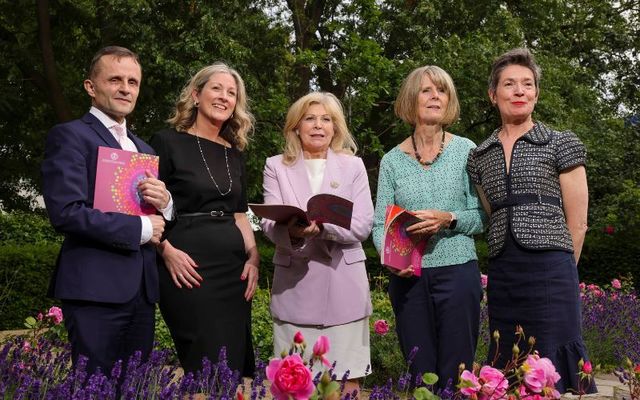The Adoption Authority of Ireland (AAI) has released a report offering an in-depth study of the Irish domestic adoption process over the course of 70 years.
The AAI's "Reflections on the Irish Domestic Adoption Process 1952–2022" was launched at the Museum of Literature in Dublin on Wednesday, July 10, and features interviews with 14 different volunteers and professionals involved in adoption.
The four-year study observed a persistent culture of secrecy, the salience of adoption-related information, and how individuals used personal agency to affect change.
The report aimed to capture individual experiences of how adoption was facilitated in Ireland, how adoption worked in practice, how it changed over 70 years, and how decisions were made.
Anne Ronayne, who worked at Irish adoption agency Cúnamh from the 1950s to the 1990s, told the report that she worked with the UK regarding women who were "pregnant from Ireland".
"As an adoption agency, we did a lot of work with a number of the 'Catholic Rescue Societies' in the UK," Ronayne told the report.
Ronayne recalled that mothers "hated" parting with their babies but said many were also relieved that they would be going to a good home.
She said many adoptive parents did not want to know about the birth mother, while birth mothers equally did not want to know about adoptive parents.
Ronayne also added that never met a birth father, stating that most of the women she encountered were not in regular relationships and often did not want to let the birth father know.
The report also noted that activism in Irish adoption is "not new" and was traditionally led by social workers, adoptive parents, or other concerned parties. However, it noted that the "voice of the adoptee" has come to the fore since the early 1990s.
The report was completed just before the enactment of the Birth and Information Tracing Act 2022.
The Birth Information and Tracing Act 2022 provides a full and clear right of access to birth certificates, birth and early life information for all persons who were adopted, boarded out or nursed out, subject to an illegal birth registration, or resided in a mother and baby home or county home institution as a child.
In a statement, AAI Chair Orlaith Traynor said the report provides a "unique account" of the efforts made by numerous people and agencies to introduce information and tracing.
"This Reflections Report provides a unique account of the efforts by multiple parties to introduce legislation providing for information and tracing," Traynor said. "In 1983, the Adoption Board highlighted, through its Annual Report, that it was receiving an increasing number of requests for birth information from adopted people.
"Demand for birth information continued to grow in the years that followed, the Board continued to highlight it as an issue, and in 2005 the Board established the Information and Tracing Unit and the National Adoption Contact Preference Register (NACPR).”
Minister for Children Roderic O'Gorman said the report explored how the Irish adoption system developed over 70 decades since adoption was legalized in 1952.
"Its key findings mirror the personal accounts, views and experiences of the many advocates, stakeholders and survivors, I have personally engaged with, during my time as Minister, "O'Gorman said.
"That is why I endeavored to bring about much needed change: change that would bring about a culture of access and release, returning the power from those holding adoption-related information to those who had the right to their own identities. The result was the landmark Birth Information and Tracing Act 2022."




Comments